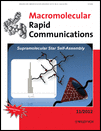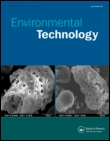
Journal of Bioresources and Bioproducts
metrics 2024
Advancing sustainable solutions through innovative research.
Introduction
Journal of Bioresources and Bioproducts, published by KEAI PUBLISHING LTD, is a premier open-access journal that has been at the forefront of research in biochemistry, biomaterials, forestry, materials chemistry, and organic chemistry since its inception in 2016. With an impressive impact factor and significant rankings in multiple categories—most notably, being positioned in the 99th percentile in several fields including Agricultural and Biological Sciences, Biochemistry, and Materials Science—this journal facilitates the rapid dissemination of innovative findings and techniques within these critical domains. The journal’s broad scope encompasses various aspects of bioresource utilization and bioproduct development, making it an essential resource for researchers, industry professionals, and students alike. The Journal of Bioresources and Bioproducts aims to promote scientific dialogue and shares pivotal insights that can spur advancements in sustainable practices and ecological conservation across different sectors.
Metrics 2024
 -
- 20.20
20.20 -
- -
-Metrics History
Rank 2024
IF (Web Of Science)
JCI (Web Of Science)
Quartile History
Similar Journals

ZEITSCHRIFT FUR PHYSIKALISCHE CHEMIE-INTERNATIONAL JOURNAL OF RESEARCH IN PHYSICAL CHEMISTRY & CHEMICAL PHYSICS
Cultivating Knowledge in Chemical PhysicsZEITSCHRIFT FUR PHYSIKALISCHE CHEMIE-INTERNATIONAL JOURNAL OF RESEARCH IN PHYSICAL CHEMISTRY & CHEMICAL PHYSICS, published by WALTER DE GRUYTER GMBH, is a highly regarded platform for researchers in the field of physical chemistry and chemical physics. With an ISSN of 0942-9352 and an E-ISSN of 2196-7156, this journal serves as a vital resource for the dissemination of original research, critical reviews, and insightful discussions that span theoretical and experimental investigations. Recognized for its quality, it holds a Q2 classification within the 2023 quartiles of Physical and Theoretical Chemistry and ranks 72nd out of 189 in the Scopus database, placing it in the 62nd percentile. The journal’s extensive publication history, originating from 1943, showcases its long-standing commitment to advancing the understanding of complex chemical phenomena. Although it currently does not offer open-access options, it continues to attract contributions from leading experts worldwide, making it essential reading for professionals, researchers, and students dedicated to pushing the frontiers of chemical science. The journal is located in Berlin, Germany, at Genthiner Strasse 13, D-10785 Berlin, Germany.

Journal of Materials Chemistry B
Connecting Disciplines Through Materials Chemistry Discoveries.Journal of Materials Chemistry B is a prestigious peer-reviewed journal published by the Royal Society of Chemistry, specializing in the latest advancements in the realm of materials chemistry. With a profound impact in the scientific community, this journal has achieved impressive Q1 quartile rankings in 2023 across several categories, including Biomedical Engineering, Miscellaneous Chemistry, Materials Science, and Medicine, illustrating its pivotal role in interdisciplinary research. Its impressive Scopus rankings further emphasize its widespread recognition, with notable placements in the top percentiles for various fields. Covering a broad scope of topics from novel materials for biomedical applications to innovative chemical synthesis techniques, the journal aims to promote knowledge exchange and foster collaborative research across disciplines. Although not an open-access journal, it offers a platform for researchers to share their findings and contribute to the evolving discourse within materials science. With a publication record spanning from 2013 to 2024, the Journal of Materials Chemistry B remains an essential resource for researchers, professionals, and students dedicated to exploring the frontiers of materials chemistry.

ACS Materials Au
Transforming Ideas into Materials BreakthroughsACS Materials Au, published by the American Chemical Society, is a premier open-access journal that has been at the forefront of materials science since its inception in 2021. With an ISSN of 2694-2461, this journal encompasses an expansive range of topics including biomaterials, electronic, optical and magnetic materials, materials chemistry, and polymers and plastics, consistently achieving Q1 rankings in these categories for 2023. The journal is based in the United States and operates from the AMS's headquarters in Washington, DC, offering significant visibility and a robust platform for researchers. The journal's commitment to open access ensures wide dissemination of groundbreaking research, enabling a diverse audience—including researchers, professionals, and students—to engage with the latest advancements in materials science. With an encouraging impact factor and a focus on novel materials and innovative applications, ACS Materials Au stands as a vital resource for anyone devoted to understanding and advancing the frontiers of materials engineering and science.

Materials Today Nano
Connecting Researchers to the Latest in Nano-Materials AdvancementsMaterials Today Nano, published by Elsevier, is a premier academic journal dedicated to the forefront of nano-materials research, encompassing innovations and advancements in biomaterials, condensed matter physics, electronic, optical, and magnetic materials, as well as materials chemistry. With an impressive Q1 ranking across multiple categories, including biomaterials and materials chemistry, this journal serves as a essential platform for researchers, professionals, and students aiming to contribute to and stay informed on cutting-edge developments that push the boundaries of materials science. Its open access model allows for wider dissemination of high-impact findings, ensuring that the research reaches a global audience. Operating from the United Kingdom, Materials Today Nano plays a vital role in fostering interdisciplinary collaboration and advancing scientific understanding in this rapidly evolving field.

Carbohydrate Polymer Technologies and Applications
Unlocking Potential: The Science of Carbohydrate PolymersCarbohydrate Polymer Technologies and Applications, published by ELSEVIER, is an esteemed open access journal that has been fostering innovation in the field of carbohydrate polymer research since its inception in 2020. With its ISSN 2666-8939, this journal is dedicated to exploring the intersections of analytical chemistry, biochemistry, biotechnology, and materials science, making significant contributions to our understanding of carbohydrate polymers and their diverse applications across various industries. Notably, it has attained a prominent position in various categories, reflecting its quality and impact: ranked Q1 in Analytical Chemistry, Biotechnology, and several Materials Science disciplines, while maintaining strong positions in the Q2 and other quartiles. Additionally, with impressive Scopus rankings—14th in Chemistry (miscellaneous) and 23rd in Analytical Chemistry—it stands at the forefront of scholarly dialogue in these areas, appealing to researchers, professionals, and students alike. The journal's commitment to open access facilitates wider dissemination of knowledge and enhances collaborative research, solidifying its role as a pivotal resource for advancing carbohydrate polymer technologies.

BIOINORGANIC CHEMISTRY AND APPLICATIONS
Advancing the frontiers of bioinorganic chemistry.BIOINORGANIC CHEMISTRY AND APPLICATIONS, published by HINDAWI LTD, is a distinguished journal dedicated to advancing the field of bioinorganic chemistry, offering an open access platform since 2008. With an ISSN of 1565-3633 and E-ISSN of 1687-479X, this journal provides a global forum for researchers, practitioners, and scholars in the vibrant fields of Biochemistry, Inorganic Chemistry, and Organic Chemistry. Recognized for its scholarly impact, it holds an impressive Q2 rank in Biochemistry and Q1 ranks in both Inorganic and Organic Chemistry in the 2023 metrics. Catering to a diverse audience, the journal emphasizes the importance of interdisciplinary research and the application of inorganic chemistry in biological systems. With an accessible range of articles aimed at fostering scientific dialogue and innovation, BIOINORGANIC CHEMISTRY AND APPLICATIONS plays a crucial role in shaping future research and application in the chemical sciences.

JOURNAL OF POLYMER RESEARCH
Connecting Researchers with the Latest in Polymer AdvancementsJOURNAL OF POLYMER RESEARCH is a leading peer-reviewed journal published by SPRINGER, specializing in the dynamic fields of polymer science, materials chemistry, and organic chemistry. Operating since 1994, this esteemed journal has consistently delivered high-quality research articles that illuminate the latest advancements and innovations in polymer technology. With an increasing impact factor and placed in the Q2 category for both Materials Chemistry and Polymers and Plastics, it stands as a valuable resource for researchers, professionals, and students seeking cutting-edge knowledge in these areas. The journal is indexed in Scopus, highlighting its significance in the academic community, with notable rankings in Materials Science and Organic Chemistry. While it does not currently offer open access options, the meticulous selection of research and thorough peer-review process ensures each article's contribution to the field is both robust and impactful. Researchers aiming to expand their understanding and engage with pioneering studies will find JOURNAL OF POLYMER RESEARCH an indispensable platform.

MACROMOLECULAR RAPID COMMUNICATIONS
Driving the Future of Organic Chemistry ForwardMACROMOLECULAR RAPID COMMUNICATIONS, published by WILEY-V C H VERLAG GMBH in Germany, is an esteemed journal dedicated to the rapid dissemination of high-quality research in the fields of materials chemistry, organic chemistry, and polymers and plastics. With a remarkable 2023 impact factor securing its place in the prestigious Q1 category across three key disciplines, the journal ranks impressively within the top quartiles of the Scopus metrics, standing at 36th in organic chemistry and 35th in polymers and plastics. Although the journal does not offer open access options, its informative depth and innovative research make it an invaluable resource for researchers, professionals, and students seeking to stay abreast of the latest developments in macromolecular science. Covering a broad spectrum of topics from fundamental research to applications, MACROMOLECULAR RAPID COMMUNICATIONS aims to foster collaboration and inspire further advancements within the scientific community.

Biomaterials Advances
Transforming Ideas into Applications in Biomaterials ScienceBiomaterials Advances is a premier journal published by Elsevier, dedicated to the rapidly evolving field of biomaterials. Established in the United Kingdom, this open-access journal aims to disseminate high-quality, peer-reviewed research that explores innovative biomaterial designs and their applications in bioengineering and biomedical engineering. With an impressive 2023 impact factor reflected in its Q1 rankings across multiple categories—including Bioengineering, Biomaterials, and Biomedical Engineering—Biomaterials Advances stands out as a critical platform for scholars and practitioners faced with advancing technologies and methodologies in the realm of materials science. Covering a broad range of topics, from biocompatibility to tissue engineering, this journal provides an inclusive forum for researchers seeking to contribute to the field. Its Scopus rankings further affirm its position as a leading resource, with notable standings in Biomedical Engineering (Rank #13), Biomaterials (Rank #8), and Bioengineering (Rank #11), all within the top percentiles. Researchers and students alike are encouraged to contribute and engage with the latest findings and innovations in biomaterials through this valuable publication.

ENVIRONMENTAL TECHNOLOGY
Exploring the Frontiers of Environmental Science and TechnologyENVIRONMENTAL TECHNOLOGY, published by Taylor & Francis Ltd, is a prominent journal that serves as a crucial platform for disseminating pioneering research in the multifaceted fields of Environmental Science, Water Science and Technology, and Waste Management. With an impressive record spanning over three decades from 1990 to 2024, the journal holds significant rankings in various categories, including Q3 in Environmental Chemistry and Q2 in both Medicine (miscellaneous) and Water Science and Technology for 2023. Its Scopus rankings further position it within the top tiers of Environmental Science disciplines, reflecting its influence and relevance, particularly as it pertains to pressing global environmental challenges. While the journal does not offer an open access option, it remains dedicated to advancing knowledge and promoting innovative solutions among researchers, professionals, and students engaged in environmental studies. As it continues to attract high-quality submissions, ENVIRONMENTAL TECHNOLOGY plays a vital role in shaping future research and practices aimed at sustainable environmental management.